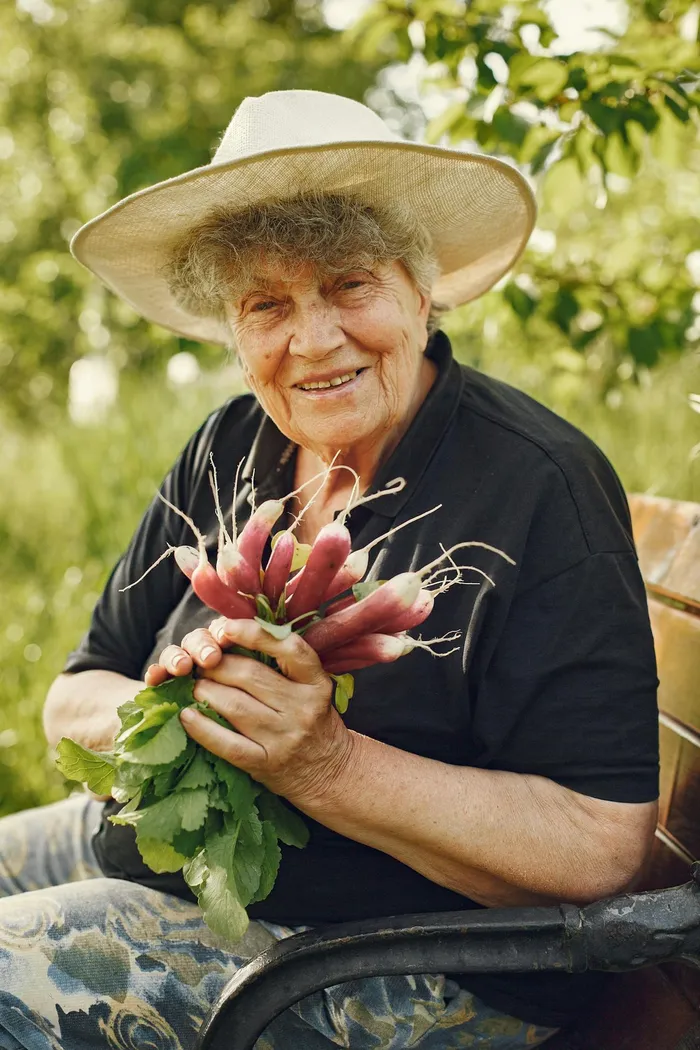Rural bliss or urban hustle: the secret to flourishing in your golden years
LONGEVITY

Older adults in rural communities reported stronger relationships with family, neighbours, and local groups. T
Image: Kampus Production/pexels
When we think about ageing well, many of us picture peace, good health, and being surrounded by loved ones.
But where we live, whether in the quiet of rural landscapes or the fast pace of urban cities, can shape how we experience our later years.
A recent study out of Mongolia has uncovered the key factors that help older adults not just survive, but flourish in these different environments.
And while the research is Mongolian, the findings ring deeply true for South Africa, where the contrasts between rural and urban life are just as pronounced.
What does flourishing mean?
Before diving into the findings, it's important to understand what researchers mean by flourishing. It goes beyond simply being free from illness.
Flourishing refers to a deeper state of well-being that includes having purpose, feeling connected to others, and enjoying good mental and physical health.
In the words of psychologist Martin Seligman, a leading voice in positive psychology, flourishing includes “positive emotion, engagement, relationships, meaning, and accomplishment”. In short, it’s about living a life that feels good and meaningful.
In the study Sociodemographic predictors of flourishing among older adults in rural and urban Mongolia, researchers found that various factors, including education, income, community support, and even diet, played a role in how well people aged.
They surveyed 304 older adults, making sure to reflect both rural and urban demographics fairly.
Though this study was done in Mongolia, South Africans can relate to the rural-urban divide. In many parts of the country, older people in rural areas face limited access to healthcare, income opportunities, and transportation.
Yet, they often report higher levels of emotional well-being, strong community ties, and spiritual engagement.
On the other hand, older adults in urban centres might have better access to doctors, shops, and social grants, but may also deal with isolation, crime, and fast-paced environments that can impact mental health.
According to Statistics South Africa’s 2022 General Household Survey, about 9% of South Africans are aged 60 and older, with many continuing to live in rural areas after retirement.
But are they truly flourishing? This is where the study becomes relevant.

Flourishing refers to a deeper state of well-being that includes having purpose, feeling connected to others, and enjoying good mental and physical health.
Image: Gustavo Fring /pexels
Urban vs rural: The pros and cons
One of the biggest contrasts in the study was lifestyle. Rural participants often led simpler, slower-paced lives, spent more time outdoors, and maintained a diet based on local, unprocessed foods. These factors contributed to better mental health, stronger social support systems, and deeper spiritual or religious practices.
Urban residents, on the other hand, were more likely to be exposed to processed food, high levels of screen time, and performative wellness trends, such as gym memberships, supplements, and yoga classes.
While these may promote physical health, they don’t always translate into emotional well-being, especially when not rooted in community or meaning. In South Africa, urban diets tend to be higher in processed and fast foods, contributing to non-communicable diseases like diabetes and hypertension.
Meanwhile, rural diets, although often limited in variety, are usually home-cooked and nutrient-dense, with less sugar and salt. This difference in food access and culture plays a key role in health outcomes.
Social connection
Another important finding from the study was the role of social connectedness. Older adults in rural areas reported stronger ties with family, neighbours, and community groups.
These daily social interactions helped reduce feelings of loneliness and depression. In contrast, many urban seniors reported feeling isolated, despite being surrounded by people. Mental health in older adults is a growing concern in South Africa.
According to the South African Depression and Anxiety Group (SADAG), depression in the elderly is often underdiagnosed, especially in rural communities where mental health literacy is low. However, the emotional benefits of strong community ties can act as a buffer against mental illness.
Mindset and meaning
Mindfulness and spirituality were also stronger in rural areas, where daily life encourages reflection and gratitude. In urban settings, people often chase productivity, even in retirement, and may tie their self-worth to output or social status.
This performative approach to wellness using apps, diets, or the latest fitness trends can sometimes miss the deeper need for emotional support and purpose.
In contrast, the study found that rural elders who engaged in religious or spiritual practices reported higher levels of flourishing.
Similarly, in many parts of rural South Africa, practices like communal prayer, traditional healing, and storytelling continue to offer older adults a sense of belonging and identity.
Related Topics: